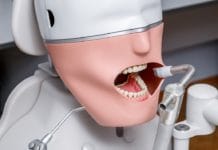The following assessment is a loose interpretation of the Myers-Briggs Type Indicator (MBTI) assessment, often used in hiring practices and for psychological evaluations. The true test is a lengthy questionnaire. This version, though, will be drastically simplified to help you understand your type, your strengths and weaknesses, and how you can more effectively communicate with types opposite you in the workplace.
Please answer the following four questions and make note of the letter next to each answer. Your final MBTI will consist of four letters, and you can find an analysis of your type at the end of the assessment. There are 16 different combinations of these types, and a more detailed assessment of your unique combination of attributes can be found on the Myers & Briggs Foundation website at myersbriggs.org.
Introverted/Extroverted
- How do you recharge after a taxing week?
(E) Going out and meeting a group of friends for drinks or having dinner in a bustling restaurant with my partner. The more, the merrier!
(I) Staying in and unwinding with Netflix or a book, a warm bath, and a glass of wine. I prefer social gatherings with small, intimate groups or just my significant other.
Sensing/Intuition
2. Which statement describes you better when a new service/product is offered that you will have to perform on patients?
(S) I tend to ask a lot of questions to make sure I understand everything, and I like to get a lot of information. It makes me feel anxious to try something new, but I feel better if I know everything about it first.
(N) Too much information overwhelms me. I just want to play around with it and figure out how it works. If I do it once, I’ll get the hang of it.
Thinking/Feeling
3. Which statement describes you better?
(T) I make decisions based on objective, measurable facts instead of the way I feel. I will make a pro/con list if I am really torn about something and typically care more about whether a decision is fair than how it will make others feel.
(F) I make decisions based on my gut feelings and have never made a pro/con list in order to make a decision about something. Sometimes, I will call someone I trust to talk about the way I feel out loud and to determine how they feel about it, too.
Judging/Perception
4. How do you like to travel?
(J) I have an itinerary printed and know which restaurants we will go to for dinner each night.
(P) I arrive at the airport an hour before the flight, with no plans other than the plane there, the hotel reservation, and the flight home in a week.
Results
Introversion (I): You do not say as much as your extroverted counterparts. You excel at utilizing language that is concise, allowing the patient to ask questions if necessary without overwhelming them with information. You allow the patient to contemplate without bombarding them and give them space with comfortable silence. You probably have a lot of success with same-day treatment for this reason. You also like to work alone and are often silently annoyed if you are interrupted before you have finished polishing. You are not always comfortable treating patients who are anxious because their nervous talking can fatigue you emotionally by the end of the appointment.
Extroversion (E): Patients often request to see only you, even after they have only met you one time. You are effortless at gaining trust by socializing and finding common ground with even the most difficult/unpleasant patients. You have a very strong ability to soothe patients who are anxious with your gregarious and relatable nature. Typically, if you see one family member, the rest of the family will be scheduled with you during the subsequent months.
Sensing (S): You are extremely consistent with treatment planning, knowing that if a patient saw you for the last cleaning you can relax. You know if they saw you, they were perio charted — ahem, accurately — at appropriate intervals, updated on medical history, radiographs, and all pathology was adequately documented. You always scale the same area first and follow the same pattern with every patient. You are surprised when your patient has some sort of rare pathology. Changing computer programs, or interrupting your daily process in some way, is something that gets under your skin.
Intuition (N): You do not treat every patient the same way. Sometimes you scale the mandibular anteriors first, sometimes not. It depends on your mood, the patient, what you were doing leading up to that point, etc. You are always on the lookout for the outlier — the pathology patient — and assume every person is that one in a hundred thousand with a rare cyst, or that person with a random 9-millimeter pocket on the direct buccal of #30. You are surprised when they’re not.
Thinking (T): Having a patient break down into tears during the first five minutes of the appointment makes you uncomfortable. You prefer to leave emotion out of the clinical room and like to have bottom-line conversations with patients without hearing about every facet of their financial and personal troubles. You are rational and present treatment well, utilizing great, simplistic analogies in order to help patients understand complicated concepts. You likely have a lot of success with large periodontal treatment plans because of your ability to help patients understand the disease and the treatment in a very logical way.
Feeling (F): You have cried with patients. Your empathetic nature makes it difficult for you to distance yourself from their lives. At times, the stories you hear from patients weigh on your heart and mind long after they have left. You remember your patients and their families as if they were friends, without having to glance at the clinical notes to remember where her daughter went to college. You are very sensitive to changes in body language, being as sensitive to emotion as you are. It is easy for you to pick up on a fidgeting patient who is getting angry, thinking you’re trying to “sell him something” when he has 8-millimeter pocketing with suppuration and needs SRP. You are exceptional at receiving the inaudible information from their body language and adjusting your approach accordingly. Not everyone has the ability to pick up on social cues, as well as you.
Judging (J): You like rules, organization, and sticking to plan A. Having a patient randomly thrown into your schedule with no knowledge of history, clinical notes, or whether they’re due for radiographs, is anxiety-inducing. You prefer to review your charts and plan for your patients ahead of time, usually the day before you come into the office. You would make a fantastic team leader, doing more administrative tasks because you are competent, organized, and perfectionistic.
Perceiving (P): You see rules as loose guidelines, not necessarily meant to be broken, but certainly bent. You bounce all over the office on a typical day. It makes no difference to you if the schedule changes 10 times throughout the day—patients added, patients canceling—so long as you are pleasantly busy. You are an asset to the team for your dynamic range of skills, your flexibility, and genuine eagerness to help, no matter if that means jumping in to take an impression or pop in to do local anesthesia for a doctor who is running behind.
Need CE? Click Here to Check Out the Self-Study CE Courses from Today’s RDH!
Listen to the Today’s RDH Dental Hygiene Podcast Below:
References
- Myers-Briggs Type Indicator. Wikipedia. 2019 January 29. Retrieved from https://en.wikipedia.org/wiki/Myers–Briggs_Type_Indicator
- Faust, K. Myers-Briggs Type Indicator (MBTI) Overview. LeadX. 2019 April 11. Retrieved from https://leadx.org/articles/mbti-myers-briggs-type-indicator-overview/











